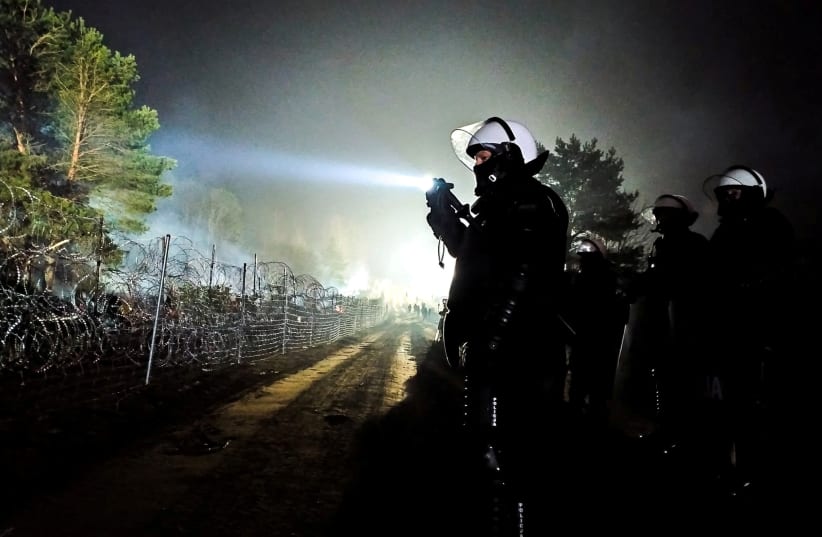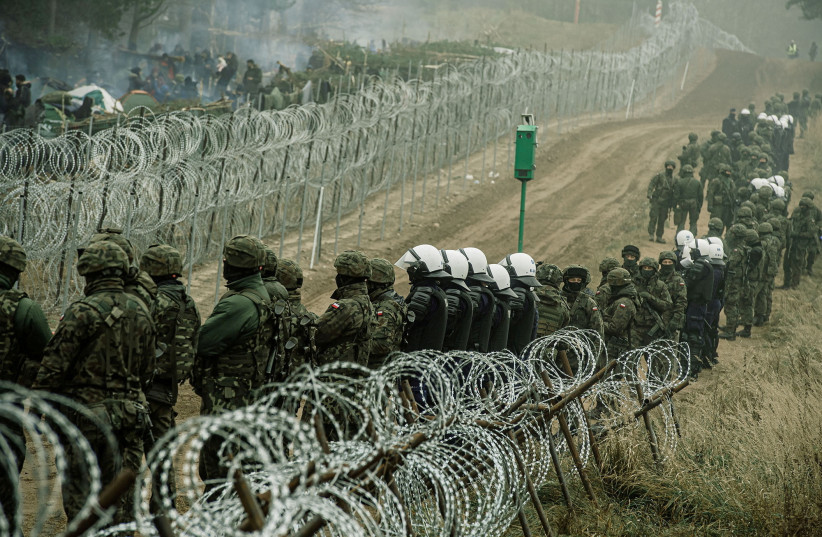Many of the people stranded in Belarus on the border with Poland and mired in a broader struggle between Belarus and Russia with the European Union are Kurds from Syria and Iraq. It is not clear what percentage of the migrants and refugees who have ended up in Belarus in recent months are from the Kurdish region of northern Iraq, but sources say it is a significant number.
One person who spoke to us on condition of anonymity said he had spoken to people seeking to go to Belarus and then cross into Europe.
“There are factors that push citizens to migrate and search for a new home,” the source said. He noted that people are fleeing what they see as local corruption, nepotism, injustice, failed judicial institutions and other factors.
These are issues facing Iraq and the autonomous Kurdistan region in northern Iraq. Turkey’s bombing campaign against what it claims are “PKK terrorists” in the mountains, Iranian agents chasing down dissidents in Sulaymaniyah, and the chaos in Iraq recently caused by sectarian militias, have all led people to want to leave.
This is the tragedy of Iraq in general, where the end of the war on ISIS did not bring peace and prosperity. In recent weeks, pro-Iranian militias have threatened the prime minister. In the Kurdish region, which is more stable and prosperous, people seek to migrate. This includes Yazidis who have been in displaced persons camps for years, and are now targeted by Western missionaries who hand out food and seek to convert them. In addition, Arabs who have fled other areas of Iraq seek to go to Europe. Kurds pushed out of Kirkuk or who fled Syria or Iran want refuge elsewhere.
The control of “clans” over local institutions also causes people to leave, the source says. This includes “lack of future plans to improve the living situation of the citizen,” he says. People pay around $4,300 for tickets to fly via Damascus to Minsk, the source says. Now, airlines are seeking to stop Iraqis and Syrian citizens from going to Belarus. Under pressure from Europe, many flights have been canceled. In addition, Iraq has said it may help repatriate its citizens. Kurdish regional government authorities have also expressed concern.
The source says that after paying for a ticket to Damascus, in some cases the locals are expected to wait for permission from Damascus and a visa. He says that upwards of 60% of those who are going to Belarus are people who live in areas in Sulimaniyeh and Dohuk that are subjected to Turkish bombardment. This means the conflict is driving them to flee as well. Ankara illegally bombs Iraq often, even targeting refugee camps and Yazidi areas, claiming it is “fighting terrorism.”
WHEN THE migrants and refugees get to Belarus, they realize they have been misled. While the concept was that this area might provide easy access to European countries, such as via the Polish border and then onward to other European Union states, they have instead been met by border police and riot control troops. The source describes a hectic situation in which the migrants are encouraged to break through border fences and that they are sent along with men wearing masks who are armed with “pieces of iron” and pepper spray. They are encouraged to breach the border around midnight.
“They want to put pressure on the Polish Army,” the source says. “We found out they put our stimulant pills in the water and the food they brought us,” the source says, quoting a person he says he spoke to on the ground.
Food is scarce. The weather is cold. Some describe harsh interrogations and even torture if they do not obey orders in Belarus. The source describes this as a kind of “war.” European countries have also alleged Belarus is engaged in a “hybrid war,” using the migrants as a weapon.
The Kurdish men say they have been kidnapped and abused by authorities in Belarus. Those who spoke out against being used as tools against the Polish troops were targeted for interrogation. The men say they were provided with knives and wire cutters to breach the border.
“They want us to attack the Polish Army,” the source says. “The Belarusian media have a live broadcast to tell the world that we are doing these heinous acts, but I swear to God that they are doing it themselves,” a Kurdish migrant said.
Families are frightened. They want help from the Polish authorities because of the abuses they now face in Belarus.
The descriptions of how migrants, especially vulnerable Kurdish minorities, were lured to Belarus and are now being pushed back and forth between the armed forces of Belarus and Poland, illustrates how refugees and migrants today often do not receive the protections that the UN and EU claim to provide. While lip service is paid to the concept of refugee rights and asylum seekers, in practice these days, migrants are often abused – whether being used by Turkey as a tool against Greece, or when European countries have paid authorities in Libya to keep migrants by using whatever means necessary – the basic rights refugees were supposed to enjoy appear often lacking.
The full story of how and why the sudden crisis has taken place in Belarus is unclear. That thousands were able to fly from Iraq and Syria to Belarus, while they often have no way out via Turkey, illustrates a new road to Europe for them that has now been closed. Why they are being used as tools and pushed across borders in an increasingly violent manner is also clear. What is less clear is whether anyone will open a refugee camp or place to help them. So far, it appears that Europe’s open borders, which appeared in 2015 when Germany invited a million Syrians and Afghans to come via Turkey, are now closed. Kurds, Yazidis and others who have suffered are now suffering again.

